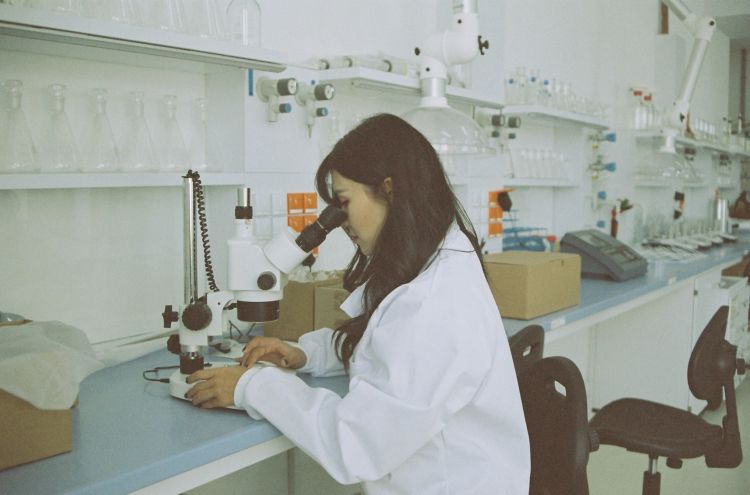Georgia Bio Names Milton High School Senior as 2021 Georgia BioGENEius Winner
Priya Soneji Advances to International Competition Against Top Students
ATLANTA–( BUSINESS WIRE )–Georgia Bio and the Georgia BioEd Institute today named Priya Soneji , a senior at Milton High School in Milton, GA, as the winner of the 2021 Georgia BioGENEius Challenge, the premier competition for high school students that recognizes outstanding research and innovation in the biotechnology field. As Georgia’s BioGENEius finalist, Priya will attend the 2021 International BioGENEius competition, which will be held virtually and featured during the BIO Digital Convention.
“In the biotech industry, young people are the closest thing we have to a crystal ball. The BioGENEius Challenge showcases scientific innovations that are only possible when young minds are given the freedom and resources to convert their ideas into action” Tweet this
Priya will compete against high school students from the U.S., Canada and Germany in the International BioGENEius Challenge. The student projects will represent a range of biotechnology topics such as healthcare, agriculture, and the environment.
Priya was selected as our winner because of the tracking microscope she developed that automatically focuses on a microorganism as it travels through three-dimensional space. Scientists typically observe microorganisms under a microscope by moving the slide or petri dish manually. Priya improved on this method by creating a mechanized device that uses AI to record video and plot the location of an organism as it travels. By enabling scientists to observe microscopic organisms for longer periods of time and more easily identify fast-moving specimens, this device has the potential to facilitate parasite diagnosis and advance the discovery of previously unknown microorganism behaviors.
“In the biotech industry, young people are the closest thing we have to a crystal ball. The BioGENEius Challenge showcases scientific innovations that are only possible when young minds are given the freedom and resources to convert their ideas into action,” said Georgia Bio President and CEO Maria Thacker. “Georgia Bio is thrilled to have Priya represent our state on the international stage at the upcoming BIO Digital Convention, and we are proud to support this Georgia scholar in her future endeavors.”
Georgia Bio also congratulates the Georgia BioGENEius runner-up, Asmi Kumar, who is also a student at Milton High School in Milton, GA. Asmi’s project focused on treating Cortical Visual Impairment (CVI) with a low-cost, computer app-based therapy, called FollowMe. CVI occurs when neurological damage in a child’s brain causes a disconnect between the optic nerve and the visual cortex. Typically, the connection is restored through coordination therapies, where parents or therapists move an object around in front of a child so that the child may track it. This method is often expensive, time-consuming, and results in inconsistent feedback on what the child’s eyes are seeing. FollowMe uses AI and a standard webcam to track the patient’s gaze as they follow targets generated in the web-based app, which eliminates the need for expensive therapy visits. Asmi plans to continue the development of FollowMe and hopes to introduce this therapy to doctors around the world.
Judging the 2021 Georgia BioGENEius Challenge were Jamie L. Graham, Boehringer Ingelheim; Ralph L. Cordell, CDC; Ian Biggs, UGA; and Alex Harvey, ViaMune, Inc.
National and International winners will be announced after the competition. See the International BioGENEius website for more information on the revised 2021 schedule. Winners will receive cash scholarships.
Follow the BioGENEius Challenge: Throughout the challenge, @BiotechInstitut will be tweeting interviews, photos, and engaging with the biotechnology community by using the hashtag #BioGENEius.
About the Biotechnology Institute
The Biotechnology Institute is an independent, national nonprofit organization dedicated to education about the present and future impact of biotechnology. Its mission is to engage, excite and educate the public, particularly students and teachers, about biotechnology and its immense potential for solving human health, food and environmental problems. For more information, visit www.biotechinstitute.org.
About the Georgia BioEd Institute
The Georgia BioEd Institute, a division of the 501(c)(3) nonprofit the Center for Global Health Innovation, works to strengthen Georgia’s life sciences workforce pipeline through classroom-to-career initiatives that align with industry needs. BioEd works closely with its sister organization Georgia Bio, which serves the state’s life science industry. For more information about BioEd, visit them online at www.georgiabioed.org , or on Facebook (@GeorgiaBioEd), Twitter (@georgiabioed), or LinkedIn (@georgia-bioed).
The post Georgia Bio Names Milton High School Senior as 2021 Georgia BioGENEius Winner appeared first on Georgia Bio.





